Q
How to check battery on 2021 Honda Civic?
To check the battery status of a 2021 Honda Civic, the most straightforward way is to use a digital multimeter to measure the voltage. When the car is off, the voltage should be between 12.4V and 12.7V. When starting, it shouldn't drop below 10V, which indicates a healthy battery. If it's below 12V, it's advisable to charge or replace it. The in-car dashboard usually doesn't display the exact voltage, but issues like difficulty starting, dim headlights, or abnormal electronic devices may signal battery problems. Regularly check if the battery terminals are oxidized or corroded (you can clean them with a baking soda solution) and ensure the mounting bracket is secure to avoid vibration damage. For models with start-stop functionality, it's recommended to use AGM or EFB dedicated batteries for better performance. Get into the habit of turning off the air conditioning and audio before shutting off the engine to reduce battery load. If the vehicle is parked for a long time, it's best to start it for 15 minutes every week or disconnect the negative terminal. Some service centers offer free battery testing services, including evaluations of professional parameters like Cold Cranking Amps (CCA), which is more comprehensive than just measuring voltage. The original battery of a new car typically lasts 2 to 4 years, but high-temperature environments and frequent short-distance driving will shorten its lifespan. It's recommended to conduct a special inspection before the rainy season to prevent sudden failures.
Special Disclaimer: This content is published by users and does not represent the views or position of PCauto.
Related Q&A
Q
How long does a 2021 car battery last?
The battery life of 2021 model year vehicles typically ranges from 3 to 5 years, depending on factors like usage habits, climate conditions, and battery type. If you often take short trips or leave the car parked for long periods, the battery might wear out faster—frequent charge-discharge cycles and prolonged low-power states can take a toll on its performance. In hot and humid climates, the battery's electrolyte may evaporate more quickly, shortening its lifespan. Most vehicles now use maintenance-free lead-acid batteries, while some high-end models might come with AGM or EFB batteries, which generally last longer and handle high temperatures better. It's a good idea to regularly check the battery's condition, like watching for signs of hard starting or dimming lights. Also, keep the battery terminals clean to prevent corrosion. If your battery is over 3 years old, it's wise to get a professional test every six months to ensure reliability. Additionally, when installing extra electronic devices like dash cams, be careful not to drain too much power, as that can affect battery life.
Q
What size battery is in the 2021 Honda Civic hatchback?
The 2021 Honda Civic Hatchback comes factory-equipped with a 12-volt, 51 amp-hour (51Ah) maintenance-free lead-acid battery, typically following Japanese standards with B19 or D23 battery specifications. The approximate dimensions are 230mm in length, 170mm in width, and 200mm in height. These batteries utilize EFB (Enhanced Flooded Battery) technology, making them more suitable for vehicles equipped with start-stop systems. When selecting a replacement battery, it's advisable to first confirm the original factory specifications or consult a professional technician, as slight differences in battery size or terminal position can lead to installation issues. Additionally, it's important to ensure the Cold Cranking Amps (CCA) rating is at least 450A to guarantee reliable starting performance in tropical climates. Regularly checking the battery's health is crucial, especially for those who frequently take short trips; the numerous on-board electronic devices can easily leave the battery in a chronically undercharged state. Generally, a car battery has a lifespan of 2-4 years, but high-temperature environments can accelerate aging. If you notice delayed starting or dim headlights, it's time to consider having the voltage tested. Some car owners now consider upgrading to AGM (Absorbent Glass Mat) batteries, which, although more expensive, offer a longer cycle life. However, it's essential to verify if the vehicle's charging system is compatible, as a blind replacement could affect the stability of the electrical system.
Q
How much does a 2021 Honda Civic battery cost?
The battery price for a 2021 Honda Civic typically ranges from RM300 to RM600, depending on the battery type and brand. Original equipment (OEM) batteries are more expensive but come with a longer warranty, while third-party brands like Panasonic or Bosch offer better value for money but with shorter warranty periods. The price difference is mainly influenced by capacity, cold cranking amps (CCA), and technical specifications. For example, models with start-stop systems require more durable AGM or EFB batteries, which are 30% to 50% more expensive than regular lead-acid batteries. It's advisable to check the battery specifications required in the vehicle manual before replacement to avoid electrical system issues due to mismatches. Additionally, regularly checking the battery's health can extend its lifespan, especially in hot and humid climates where battery degradation occurs faster, usually requiring replacement every 2 to 3 years. Choosing a reputable repair shop or authorized service center ensures quality installation, and some stores even offer free testing and old battery recycling services.
Q
Can I start my 2021 Honda Civic with my phone?
The 2021 Honda Civic may come with a smart key system on some higher trim levels, but the factory doesn't directly support engine start via a phone app. However, you can add a third-party remote start module to get phone control. These modules usually need to connect to the vehicle's OBD port or pair with the original key system. Once installed, you can use a dedicated app for remote start, locking, pre-cooling the AC, and other functions. When using such products, make sure to choose reputable brands to ensure compatibility and safety, and avoid interfering with the original car's electronic system. Also, remote start uses a lot of battery power; prolonged use might drain the battery. It's best to operate in an area with stable signal. Additionally, some financial institutions have special terms regarding added electronic devices, so it's wise to check before financing a car. These tech features really boost convenience, especially pre-starting the AC on hot days. But keep theft security in mind—use it with the factory anti-theft system if possible.
Q
How long will a 2021 Honda Civic Sport last?
The 2021 Honda Civic Sport can typically last between 200,000 to 300,000 kilometers or even longer with normal use and regular maintenance. Its lifespan really depends on driving habits, road conditions, and how often you keep up with servicing. Under the hood, the 1.5L turbocharged engine is pretty well-proven tech, and paired with the CVT transmission, it delivers smooth power and solid fuel economy—plus, it’s got a good track record for long-term reliability.
To keep it running strong, stick to the manufacturer’s recommended maintenance schedule. That means regular oil changes, replacing filters, and changing the transmission fluid when due. Also, keep an eye on the brake system, suspension components, and tire wear—staying on top of these things can seriously extend the car’s life. Since the Civic’s suspension is tuned a bit sporty, if you’re often driving on rough roads, you might want to check those suspension parts more frequently. For the electronic systems, keeping the software updated can help avoid potential issues too.
One more thing worth noting: Civics hold their value well in the used car market, which is a good indicator of their long-term durability. But of course, if you’re buying used, always get a professional inspection to check the specific condition. And when it comes to repairs, using genuine parts from authorized dealers and having work done by certified technicians is key to maintaining performance.
Q
How much does a 2021 Honda Civic cost?
The 2021 Honda Civic's prices in the local market vary depending on the trim and configuration. The base 1.8L S variant typically sells for around RM110,000 to RM120,000, while the higher-spec 1.5L Turbo RS can go up to approximately RM140,000 to RM150,000. Actual prices are also affected by dealer promotions, insurance, and taxes. This car is widely popular for its reliable performance, sleek exterior, and practical interior design. The 1.5T turbocharged engine version, in particular, delivers stronger power and better fuel efficiency, making it a great fit for drivers who enjoy a fun ride. As a classic family sedan, the Civic comes loaded with safety features too, usually including the Honda Sensing suite—think adaptive cruise control, lane keeping assist, and automatic emergency braking—that boost driving safety. If you're looking at a used 2021 Civic, it holds its value pretty well, but it's smart to check the condition and service history through official channels to make sure you're getting your money's worth.
Q
Does the 2021 Civic hatchback have VTEC?
The 2021 Civic Hatchback does come with VTEC, but it's worth noting that this model uses a 1.5-liter turbocharged engine (L15B7). Its VTEC system primarily operates on the intake side, unlike the dual-overhead VTEC found in traditional high-performance Honda engines, which is common on both intake and exhaust sides. This design prioritizes improved fuel efficiency and mid-to-low rpm torque, while still delivering decent power at higher revs. As Honda's signature tech, VTEC optimizes engine performance across different driving conditions by adjusting valve lift and timing, and it remains one of the core strengths of Honda engines to this day. For owners who like to modify their rides, this 1.5T engine, despite its more complex structure, still has good potential. Paired with the turbocharger, it puts out solid power that's more than enough for daily driving, and the fuel economy is pretty reasonable too. If you're specifically hoping for that classic VTEC sound, you might need to get used to the relatively muted character of this turbocharged engine—after all, its tuning leans more toward practicality and meeting emissions standards.
Q
Is the Honda Civic 2021 a good car?
The 2021 Honda Civic is a well-rounded vehicle. Its 1.5-liter turbocharged engine delivers 173 horsepower and 220 Nm of torque, providing smooth power delivery and excellent fuel efficiency, making it ideal for daily commuting and long drives. The chassis tuning leans towards comfort while retaining some sporty feel, and the sound insulation has improved compared to the previous generation. The interior features a simple design with a standard 7-inch touchscreen that supports Apple CarPlay and Android Auto, offering good practicality. In terms of safety, it comes with Honda Sensing, which includes active safety features like adaptive cruise control and lane keeping assist. The Civic holds its value well in the used car market, with reasonable maintenance costs and ample parts availability. Among its peers, the Civic excels in space utilization, offering generous rear legroom and a 519-liter trunk. It's worth noting that some owners report noticeable tire noise at highway speeds, so it's advisable to check the tire configuration when purchasing. If budget allows, consider adding the factory-installed sound insulation upgrade kit for a quieter driving experience.
Q
How much is a starter for a 2021 Honda Civic?
The starter motor price for a 2021 Honda Civic typically ranges from 800 to 1500 Malaysian Ringgit. The exact cost depends on whether you go for original equipment manufacturer (OEM) parts or third-party brand components, as well as the labor fees at the repair shop. OEM parts come with a higher price tag but include a warranty, while third-party brands might offer better value for money.
The starter motor is a crucial component for starting the engine, responsible for converting electrical energy into mechanical energy to crank the engine. If you experience difficulty starting the vehicle, hear unusual noises, or find the engine completely fails to ignite, it might be time to inspect or replace the starter motor.
In daily maintenance, avoiding frequent short trips that drain the battery can indirectly extend the starter motor's lifespan. Low battery voltage forces the motor to work beyond its capacity. It's advisable to choose a certified repair shop for replacement to ensure genuine parts and professional installation. While you're at it, have the battery and charging system checked too, as faults in these components can also cause similar starting issues.
Q
What is the top speed of the 2021 Honda Civic hatchback?
The 2021 Honda Civic Hatchback has a top speed of around 137 mph (approximately 220 km/h), figures that come from its 1.5-liter turbocharged four-cylinder engine cranking out 180 horsepower and 177 lb-ft of torque. It pairs with either a CVT or a 6-speed manual transmission—you might see a tiny bit more with the stick shift. On the open road, it stays planted thanks to its low center of gravity and sport-tuned suspension, and it doesn’t skimp on efficiency either, with a combined fuel economy of roughly 6.5 liters per 100 kilometers. Slotting between family hauler and sporty runabout, the Civic Hatchback suits drivers who want a bit of fun behind the wheel without giving up practicality. The Honda Sensing suite, which includes adaptive cruise control and lane-keeping assist, makes those long highway stretches way more relaxed too. Just remember, real-world top speed can vary with road conditions, vehicle load, or weather, and safe driving should always be your first priority—plus, local traffic laws clearly set highway speed limits.
Latest Q&A
Q
How long does a 2021 car battery last?
The battery life of 2021 model year vehicles typically ranges from 3 to 5 years, depending on factors like usage habits, climate conditions, and battery type. If you often take short trips or leave the car parked for long periods, the battery might wear out faster—frequent charge-discharge cycles and prolonged low-power states can take a toll on its performance. In hot and humid climates, the battery's electrolyte may evaporate more quickly, shortening its lifespan. Most vehicles now use maintenance-free lead-acid batteries, while some high-end models might come with AGM or EFB batteries, which generally last longer and handle high temperatures better. It's a good idea to regularly check the battery's condition, like watching for signs of hard starting or dimming lights. Also, keep the battery terminals clean to prevent corrosion. If your battery is over 3 years old, it's wise to get a professional test every six months to ensure reliability. Additionally, when installing extra electronic devices like dash cams, be careful not to drain too much power, as that can affect battery life.
Q
What size battery is in the 2021 Honda Civic hatchback?
The 2021 Honda Civic Hatchback comes factory-equipped with a 12-volt, 51 amp-hour (51Ah) maintenance-free lead-acid battery, typically following Japanese standards with B19 or D23 battery specifications. The approximate dimensions are 230mm in length, 170mm in width, and 200mm in height. These batteries utilize EFB (Enhanced Flooded Battery) technology, making them more suitable for vehicles equipped with start-stop systems. When selecting a replacement battery, it's advisable to first confirm the original factory specifications or consult a professional technician, as slight differences in battery size or terminal position can lead to installation issues. Additionally, it's important to ensure the Cold Cranking Amps (CCA) rating is at least 450A to guarantee reliable starting performance in tropical climates. Regularly checking the battery's health is crucial, especially for those who frequently take short trips; the numerous on-board electronic devices can easily leave the battery in a chronically undercharged state. Generally, a car battery has a lifespan of 2-4 years, but high-temperature environments can accelerate aging. If you notice delayed starting or dim headlights, it's time to consider having the voltage tested. Some car owners now consider upgrading to AGM (Absorbent Glass Mat) batteries, which, although more expensive, offer a longer cycle life. However, it's essential to verify if the vehicle's charging system is compatible, as a blind replacement could affect the stability of the electrical system.
Q
How much does a 2021 Honda Civic battery cost?
The battery price for a 2021 Honda Civic typically ranges from RM300 to RM600, depending on the battery type and brand. Original equipment (OEM) batteries are more expensive but come with a longer warranty, while third-party brands like Panasonic or Bosch offer better value for money but with shorter warranty periods. The price difference is mainly influenced by capacity, cold cranking amps (CCA), and technical specifications. For example, models with start-stop systems require more durable AGM or EFB batteries, which are 30% to 50% more expensive than regular lead-acid batteries. It's advisable to check the battery specifications required in the vehicle manual before replacement to avoid electrical system issues due to mismatches. Additionally, regularly checking the battery's health can extend its lifespan, especially in hot and humid climates where battery degradation occurs faster, usually requiring replacement every 2 to 3 years. Choosing a reputable repair shop or authorized service center ensures quality installation, and some stores even offer free testing and old battery recycling services.
Q
Can I start my 2021 Honda Civic with my phone?
The 2021 Honda Civic may come with a smart key system on some higher trim levels, but the factory doesn't directly support engine start via a phone app. However, you can add a third-party remote start module to get phone control. These modules usually need to connect to the vehicle's OBD port or pair with the original key system. Once installed, you can use a dedicated app for remote start, locking, pre-cooling the AC, and other functions. When using such products, make sure to choose reputable brands to ensure compatibility and safety, and avoid interfering with the original car's electronic system. Also, remote start uses a lot of battery power; prolonged use might drain the battery. It's best to operate in an area with stable signal. Additionally, some financial institutions have special terms regarding added electronic devices, so it's wise to check before financing a car. These tech features really boost convenience, especially pre-starting the AC on hot days. But keep theft security in mind—use it with the factory anti-theft system if possible.
Q
How long will a 2021 Honda Civic Sport last?
The 2021 Honda Civic Sport can typically last between 200,000 to 300,000 kilometers or even longer with normal use and regular maintenance. Its lifespan really depends on driving habits, road conditions, and how often you keep up with servicing. Under the hood, the 1.5L turbocharged engine is pretty well-proven tech, and paired with the CVT transmission, it delivers smooth power and solid fuel economy—plus, it’s got a good track record for long-term reliability.
To keep it running strong, stick to the manufacturer’s recommended maintenance schedule. That means regular oil changes, replacing filters, and changing the transmission fluid when due. Also, keep an eye on the brake system, suspension components, and tire wear—staying on top of these things can seriously extend the car’s life. Since the Civic’s suspension is tuned a bit sporty, if you’re often driving on rough roads, you might want to check those suspension parts more frequently. For the electronic systems, keeping the software updated can help avoid potential issues too.
One more thing worth noting: Civics hold their value well in the used car market, which is a good indicator of their long-term durability. But of course, if you’re buying used, always get a professional inspection to check the specific condition. And when it comes to repairs, using genuine parts from authorized dealers and having work done by certified technicians is key to maintaining performance.
View MoreRelated News
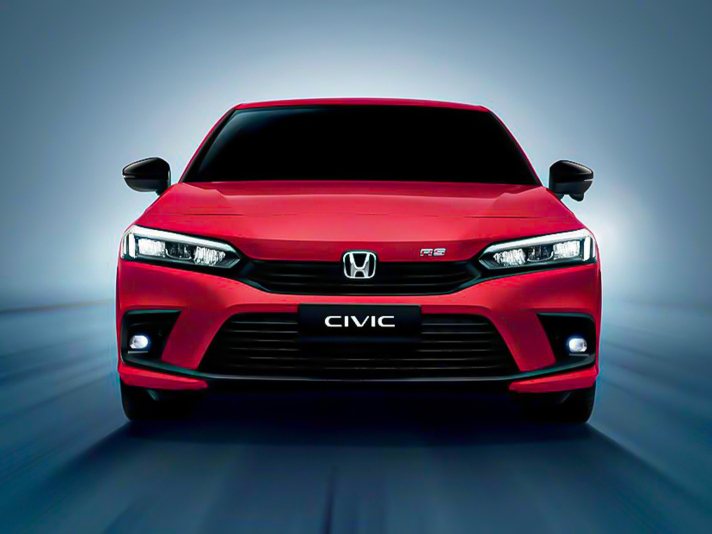
Honda Civic Interior Revealed: A Comprehensive Analysis of Civic’s Interior Charm
Kevin WongJul 10, 2025
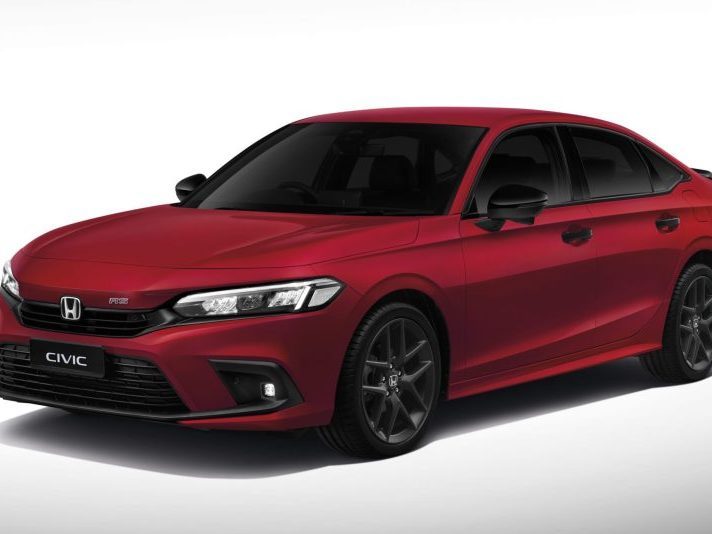
Honda Civic Price Revealed: The Most Detailed Buying Guide!
AshleyApr 8, 2025
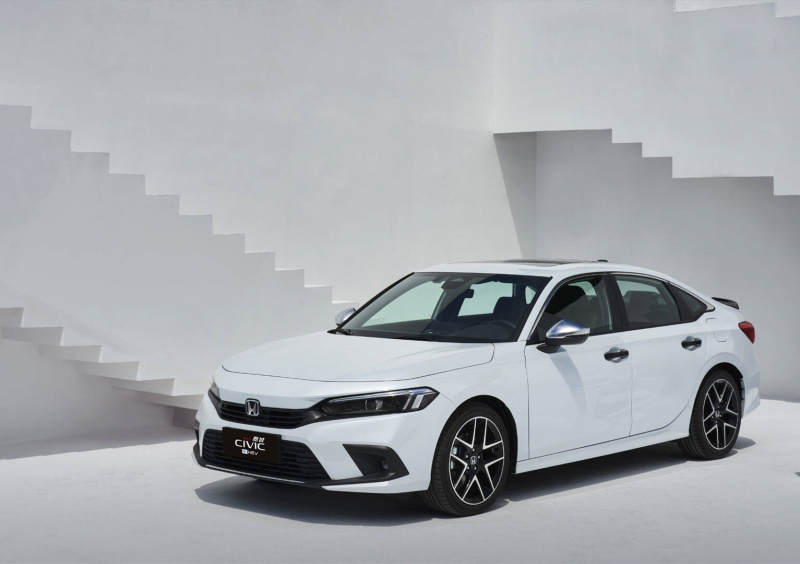
Whether it's about appearance or handling, why do young people all like Honda Civic?
WilliamSep 24, 2024
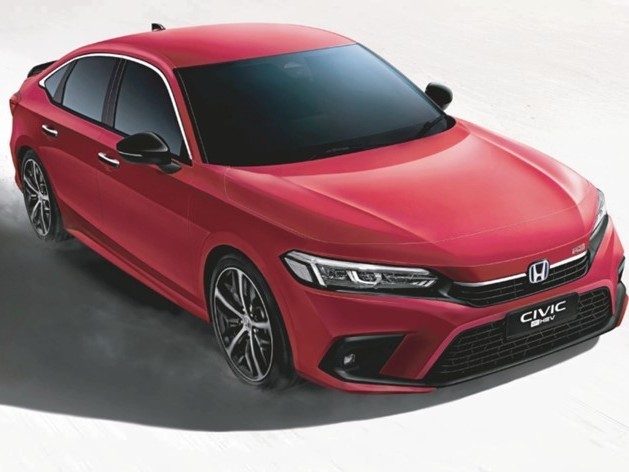
2022 Honda Civic: Hybrid car with the fastest acceleration, lowest fuel consumption, who says eco-friendly cannot be fast
JohnSep 3, 2024
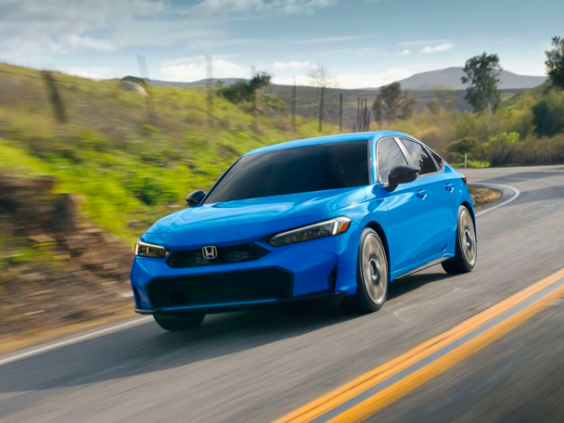
2025 Honda Civic debuts, minor changes in appearance, has 1.5 Turbo model been discontinued?
LienMay 22, 2024
View More












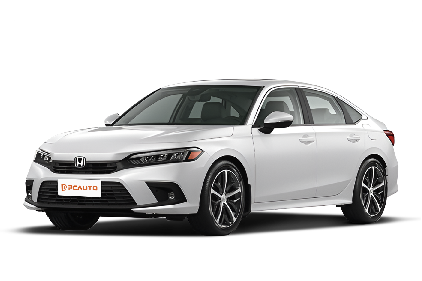
 Cars
Cars
Pros
Cons